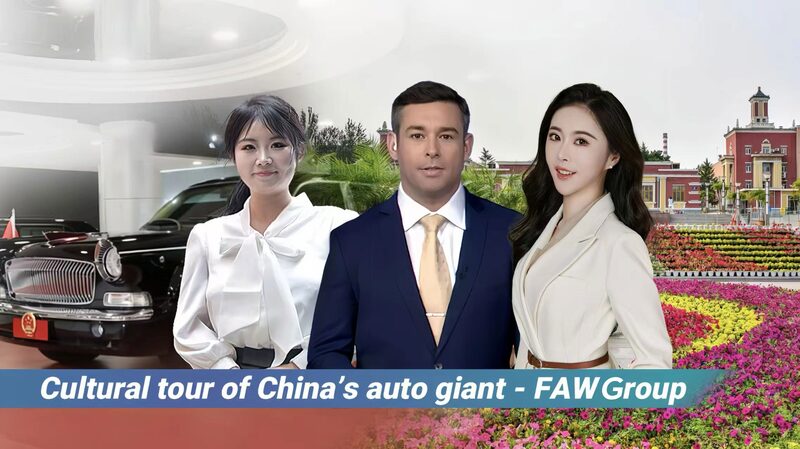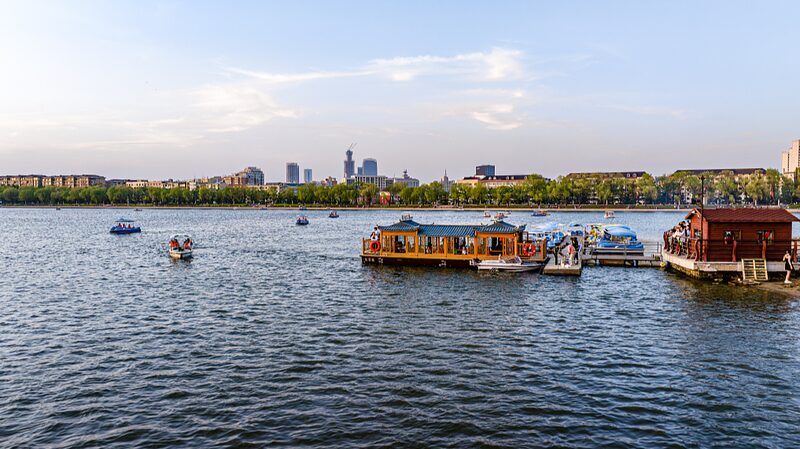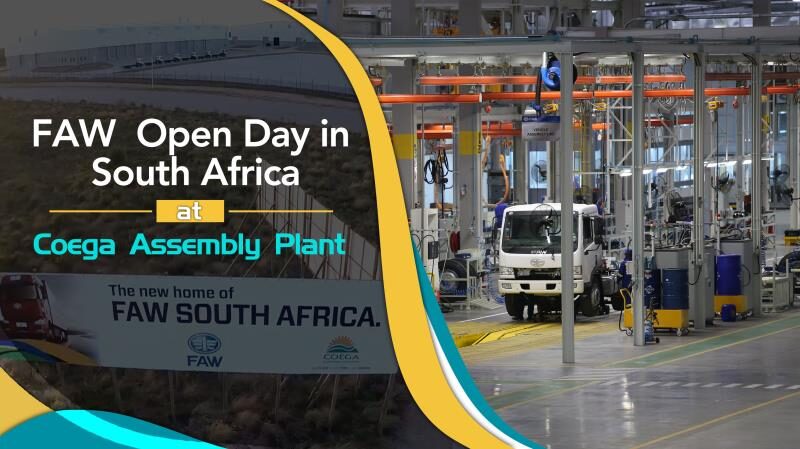In the heart of Changchun, the capital of northeast China’s Jilin Province, lies the birthplace of China’s automotive industry: the FAW Group. Founded in 1953 as China First Automobile Works, FAW Group has been at the forefront of China’s automotive revolution, shaping the nation’s transportation landscape for nearly seven decades.
Recently, CGTN anchor Lincoln Humphries, alongside reporters You Yang and Xu Yi, embarked on a cultural tour of this automotive giant. The journey offered a rare glimpse into the manufacturing process of China’s iconic sedan brand, Hongqi, and unfolded the rich history and cultural significance behind FAW Group’s legacy.
A Legacy Born in Changchun
The tour began with a walk through FAW Group’s historic assembly plant, the first of its kind in China. Established in July 1953, this plant marked the beginning of China’s journey into automobile manufacturing. As visitors stepped onto the factory floor, they witnessed the blend of tradition and innovation that defines FAW Group today.
The Iconic Hongqi Brand
One of the highlights of the tour was exploring the production line of Hongqi, which translates to “Red Flag” in Chinese. Hongqi sedans have long been a symbol of China’s automotive prowess and are often associated with the country’s leadership and major national events. Observing the meticulous craftsmanship that goes into each vehicle, visitors gained an appreciation for the brand’s commitment to excellence and elegance.
Blending Culture with Industry
Beyond the machinery and assembly lines, the tour delved into the cultural aspects that make FAW Group unique. The company prides itself on integrating Chinese cultural elements into its designs and corporate philosophy. From incorporating traditional motifs into car designs to fostering a work culture that honors Chinese heritage, FAW Group showcases how industry and culture can harmoniously coexist.
Looking Ahead
As one of China’s oldest and largest automobile manufacturers, FAW Group continues to drive forward, embracing new technologies and expanding its global reach. The cultural tour not only highlighted the company’s historical achievements but also its vision for the future of mobility in China and beyond.
For those interested in the dynamics of Asia’s economic and cultural development, FAW Group’s story is a testament to China’s rapid industrial growth and its integration of tradition with modernization. The tour offered an engaging narrative that resonates with investors, academics, and cultural enthusiasts alike, underscoring the influential role FAW Group plays in both China’s past and its future.
Reference(s):
cgtn.com








